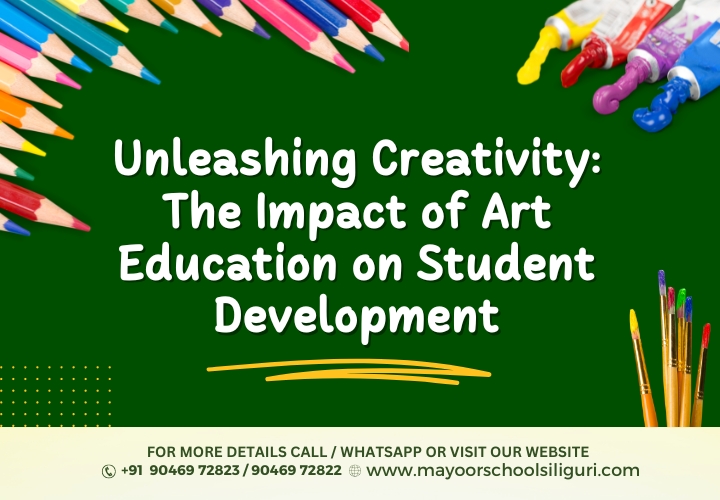
Art education plays a crucial role in fostering holistic development and creativity in students. From enhancing cognitive abilities to nurturing emotional intelligence, art has a profound impact on student growth.
Art education’s impact is not only for creative expression; but it is also a powerful tool for cognitive development. The students’ engagement in various art forms such as music, visual arts, theatre, and dance stimulates different areas of the brain, fostering neural connections. It even enhances critical thinking and problem-solving skills.
Research has shown that students who participate in art education often exhibit better academic performance. For instance, studies indicate that students involved in music education tend to have higher math and reading scores. This is because learning music involves understanding patterns, fractions, and sequences, which are also foundational concepts in mathematics.
Art demands focus and discipline. Whether it's memorizing lines for a play, learning the steps of a dance, or recalling musical notes, students develop strong memory and concentration and creative skills, these abilities translate into improved performance in students’ academic areas, as students can retain and process information more effectively.
Art education is instrumental in nurturing emotional growth and social skills. Through the various forms of art, students learn to express themselves, understand and manage their emotions, and empathize with others.
Creating art, performing on stage, or displaying artwork can significantly boost a student's self-confidence. The process of art integration with subjects gives a new dimension to artistic creation and it opens the door of appreciation and feedback from peers and teachers. Even the students believe in their abilities and value their contributions.
Art provides various platforms for students to communicate their ideas and feelings. Whether through a painting, a piece of music, or a theatrical performance, students learn to convey complex emotions and messages. This enhances the student learning process both verbal and non-verbal communication skills, and making them more effective communicators.
Art education often involves group activities and projects, which teach students the importance of teamwork and collaboration. Working together to create a mural, perform a play, or produce a concert fosters a sense of community and helps students develop essential social skills such as cooperation, negotiation, and conflict resolution.
Art education is about nurturing creativity in the students. It encourages students to think outside the box, experiment with new ideas, and approach problems from different perspectives. This creative mindset is invaluable in all areas of life and is particularly beneficial in today's innovation-driven economy.
Art challenges students to be original and innovative. By exploring different artistic mediums and techniques, students learn to take risks, embrace mistakes as learning opportunities, and develop unique solutions to problems. These skills are crucial for success in any field, as they foster a mindset of innovation and adaptability.
Engaging in the art requires students to analyze, interpret, and criticize their own work and the work of others. This cultivates critical thinking skills, enabling students to evaluate situations, make informed decisions, and develop well-rounded viewpoints.
In conclusion, art education is a vital component of student development. As we strive to prepare students for the complexities of the modern world, it is imperative to recognize and support the role of art in education. By doing so, we can ensure that students not only excel academically but also develop into well-rounded, creative, and emotionally intelligent individuals. Investing in art education is investing in the future, unlocking the full potential of the next generation of thinkers, creators, and leaders.
Read More Article: Easy and Nutritious Vegetarian Snacks for Children